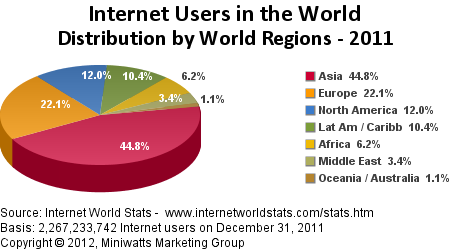Today's perception of social networks has evolved in large part due to the advent of the Internet. One on one meetings and encounters are occurring less frequently as technology evolves to facilitate business meetings, satellite conferences, virtual office, Facebook, even Google's maps, where you get a ground level view of almost any street in every major and not so minor city. The Internet and now the Cloud, is the keeper of social relationships. Shut the system down and a virtual or literal paralysis ensues.

link
So where does that leave the up-close-and-personal, relationships. Even the intimate dating services are finding more effective ways for people to size other people up before considering whether or not that is the right person for them; to take it a step further, the reality television also makes assumptions about how to pair people under false pretenses to some degree. But there are multiple positions to consider in the web of social networks.
One aspect of the networks is how they are bringing people together, flash mobs, social rebellion, research and fact finding (such Julian Assange founder of WikiLeaks), forming a more effective force against other organized forces; those forces may be government, business leaders, or simply young adults using technology to have what they consider fun. While incidents in London represent more anarchy and dissidents than development of social networks, they nonetheless play an important role in history and the continued evolution of social networks. And while academia does not consider Wikipedia a valid sources for citing references for authoritativeness in documentation, they are using a system similar to that of major corporations-- and Wikipedia is the epitome of what social networks have the potential to achieve.
But another view of social networks is more conventional and extends back as far as we can trace the elements of human and other animal nature- or all living organisms. Social networks of this sort have allowed various living organisms to survive millions of years; they have thrived and evolved as a result of their organization and communication around their habits. Such behaviors have allowed them to reproduce and increase their population over time. Another attribute of the more conventional method of social networking is the important of capturing the nuances in ones expressions, variations in their voice, and body movements as the mind reads and interprets all of these actions; that ability makes our brains faster than IBM's BlueGeen/ L. (360 teraflops). The reason this is significant is that as humans, we need stimulation and interpret multiple environments like no other mechanism in the world. People need people, despite the amazing accomplishments of technology.
Though I am active on twitter, facebook, blogging etc., there is no substitute for friends coming over for a glass of wine; nothing like the smell of new born breath, the air at 14,000 feet from a Colorado mountain top or the memories of traveling down long dirt roads to visit our great grand parent's farm; and the miracle of first time experiences like scuba diving. If technology replaced all of those function with a virtual experience, all the Google maps in the world would not serve as a viable substitute. That being said, the following is also true. The combination of technology and the human experience takes us to a whole other level.

Technology has granted me the benefit of Couch Surfing, as a result, I can enjoy my human experience in different parts of the world with other like minded people; Meetup serve a similar purpose, allowing me to partake in various activities that I might otherwise do alone with people who share a similar interest in (wine tasting, playing music, hiking mountains, the list is endless-- really!). And crowd sourcing is the technological advancement that helps these ideas and networks spread and take root in society.
Wikipedia is both a solid social network with multiple expert contributors making entries as well as a exemplary example of new-to-the-scene, crowd sourcing. doc not have been In some instances the assembly of such groups helps to create a better sense of solidarity.
 If I had to choose at this point in my live I will always select the pleasure of having the human experience but knowing that I can indulge in both brings me great happiness! And anyone who knows me knows that I live to be happy.
If I had to choose at this point in my live I will always select the pleasure of having the human experience but knowing that I can indulge in both brings me great happiness! And anyone who knows me knows that I live to be happy.My happy parting advice to all of my readers: whether you find more happiness in conventional social networks or virtual networks, identify 10 things that make you happy, promise yourself that you will do at least one of them each day; and you will be happy for the rest of your life.



Everyone should have a balance between their social network and face to face interaction. A new app called Ufree is the key to maintaining this balance.
ReplyDeleteUfree displays your friends live availability. This encourages users to both have the social network connection as well as getting out and hanging with your friend at any moment.
You should check it out at www.ufreeapp.com